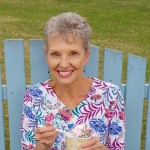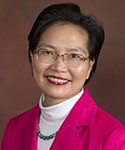March 16, 2021
Why Post-Widowhood Marriage Exposes Those to Future Risk?
When Dr. Kathleen Rehl’s husband died in 2007 she experienced widowhood for the first time. According to Dr. Rehl’s research, 70% of women will experience widowhood in their lifetime compared to 80% of men who die while married. What’s more, women living in poverty are four to five times more likely to be widowed and live up to another 15 years on their own.
Dr. Rehl first opened a financial planning business with an emphasis on philanthropy working with charitable gifts and clergy. After her husband’s death, she stepped back from the practice and decided to only accept clients who were widows or soon-to-be. In 2010, she wrote Moving Forward on Your Own: A Financial Guide for Widows and started doing speaking events for other widows. “I decided to go down the path of helping widows, I knew I could impact more widow lives than the 70 individual clients that I had at my firm,” she said. Dr. Rehl did that for six years before rotating to another career in retirement. She now works with nonprofits and sometimes does individual workshops for widows.
Why is the Death of One Spouse Economically Devastating for Another?
As couples get older, it is common to find one spouse, typically the woman, handling the finances of the household such as the budget. Dr. Rehl explained that there is an importance of having money conversations between couples and developing a level of understanding for when someone passes on. When it is typically one spouse that handles the finances, it leaves the other completely in the dark if something happened to their spouse. It is as simple as not knowing the passwords to the bank accounts or where to find important documentation.
“Being in pain from the grief and not understanding the money and all the issues are difficult. It can be really problematic if they’re [the couples] not having money conversations and one spouse doesn’t know,” Dr. Rehl said. She also noted that older widows who remarry build a great self-confidence about their husbands managing the finances, once again leaving them in the dark about their finances.
The Three Stages of Widowhood:
Number 1: Taking Care of Me
This is the financial triage stage, explained Dr. Rehl. The widow is experiencing intense grief and is particularly vulnerable. Many also refer to this stage as the jello phase due to the state of their thinking and processing during this time. The financial triage stage is where no big decisions are made, instead, there is a focus on the general finances that HAVE to be taken care of. Not all widows progress from this stage into stage two or even three. Usually, those that don’t progress from this stage are the senior widows. As a financial advisor, it is important to use the right language to communicate when with clients, Dr. Rehl said. This is a balance of being empathetic and gently helping them to try to move to the stage at their own pace.
Number 2: Taking Care of Business
The second stage is general planning, explained Dr. Rehl. This is the stage of growth after the initial grief has been passed. More general planning can be completed with the widow such as investments and estate planning. There is no “correct” timeline as to when the client will move into stage two, Dr. Rehl said, sometimes it can be a few months or it can take years. In this stage, it is also important for the client to reach out and seek help. It is also good to encourage the children to come into the office to also speak with the advisor so they can be involved and understand what is happening.
Dr. Rehl explained that this stage is a good lesson for couples to learn before one passes. She suggests having “Money Dates” with your other half regularly to share little financial details. Start with an easy topic such as passwords and pins, then the following weekend look at budgets, she suggested. Take it “one little piece at a time to share information with one another,” she said.
Number 3: Taking Care of More
This is the final stage of widowhood, where advanced planning can take place. The widow has developed a new perspective and is ready to redesign her life. This could be starting a new hobby or even start dating again. She is “blossoming into new beginnings,” Dr. Rehl said. Although this new stage rings promise and hope, there is still grieving, she explained. Dr. Rehl herself remarried many years after the death of her husband, but she said the grieving never really stops nor the memory of the spouse, yet this stage is a time of fulfillment.
Being Financially Secure
“No matter what stage a widow is at, spoken or not, there is a common thread of wanting to be financially secure,” Dr. Rehl said. Widows want financial literacy, knowledge, an understanding of their money story, and the ability to do basic budgeting/ savings. However, this can’t happen until the client feels comfortable even talk about money. Getting to this place of comfort is essential if the client wants to start making financial decisions. Therefore, it is important to build trust and develop a relationship with them as the financial advisor.
“The meetings you have, especially with a new widow, will not be one of the marathon meetings that go on forever and forever, they’re going to be shorter with more of them. With a widow you’re going to slow things way down,” she said. The advisor can help address their emotions and be a support system for them. If you aren’t naturally an empath or struggle to be this figure, Dr. Rehl suggests seeking out someone who is professionally trained to help widowed clients or to get them in touch with someone who specializes and understands. Alternatively, Dr. Rehl believes it is important for advisors to have some sort of understanding by at least researching widowhood a little.
Legacy Letter
A legacy letter is a letter you can leave behind to anyone you desire to have. It is the opportunity to write about yourselves and create a life-print of detailed information to leave behind. Dr. Rehl explained that individual letters can be written or general ones to family and friends. “How many times do you think I read my mother’s will? Very rarely. I read her legacy letter often even though she passed 14 years ago” she said. If writing a letter isn’t your style, you could also record a video or get creative in another style.
One Piece of Advice
Dr. Rehl’s final thoughts to the interview were a piece of advice. She said that everyone should consider working with widows as she believes they are the best group to work with. “Once they trust you and you’ve got their back as a thinking partner, empowering them, they will be with you forever and tell their widow girlfriends about you,” she said.
 About Dr. Kathleen M. Rehl:
About Dr. Kathleen M. Rehl:
Kathleen M. Rehl, Ph.D., CFP®, CeFT® wrote the award-winning book, Moving Forward on Your Own: A Financial Guidebook for Widows after the death of her late husband. More than 75,000 copies of this book are in circulation. She owned Dr. Rehl Financial Advisors for almost 18 years before retiring to a six-year encore career empowering widows and their advisors through her speaking, writing, and doing research about widows. Her work has been featured in articles published by the New York Times, Wall Street Journal, Kiplinger’s, CNBC, USA Today, and many others. She happily “reFired” on her 73rd birthday in 2020. Kathleen and her new husband, Charlie, concentrate on family, fun, focused-purpose, friends, and fitness. She enjoys writing legacy poetry and stories plus assisting nonprofits. Her website is at https://kathleenDr. Rehl.com.
 About the Host:
About the Host:
Dr. Chia-Li Chien is a succession program director at Value Growth Institute, a succession consulting practice dedicated to helping business owners increase their firms’ equity value. Before her private consulting practice, she held several senior management positions in Fortune 500 companies. Dr. Chien is a director of the financial planning program at the School of Management at California Lutheran University. Dr. Chien is a frequent speaker about succession and retirement planning at national conferences and has published three award-winning books, including her most recent publication, “Enhancing Retirement Success Rates in the United States.” Dr. Chien serves on the boards of various national financial service associations. She holds a doctorate in financial planning and is a Certified Financial Planner (CFP®) as well as Project Management Professional (PMP®).
 About the Author:
About the Author:
Rosie Baker is an undergraduate student at California Lutheran University, graduating in May 2021. She is studying Communication with an emphasis in PR and Advertising and has a minor in Creative Writing. In July 2020, she published her first book, Mirrors & Windows: Unlocking a New Framework to Envision Your Success, with New Degree Press.
Dr. Chien interviewed Kathleen M. Rehl, Ph.D., CFP®, CeFT®, on “Why Post-Widowhood Marriage Exposes Those to Future Risk?” on March 16, 2021, at 1:00 pm PST.
One person of a married couple will pass first. For some, their long companionship may cause emotional hardship for surviving spouses. For others, the hardship may impact the surviving spouse’s financial stability. In this session, we will discuss the following questions:
- Why is the death of a spouse economically devastating for the survivor?
- What are the stages of widowhood?
- What is financial empowerment for the non-financial dominating spouse?
- What are some steps to increase financial empowerment before the loss of a spouse?
Reference:
Mattia, Laura, Eun Jin Kwak, John E. Grable, Carrie L. West, Linda Y. Leitz, and Kathleen M. Rehl. 2020. “Self-Empowerment Among Widows: A Financial Planning Perspective.” Journal of Financial Planning 33 (10): 52–60.
